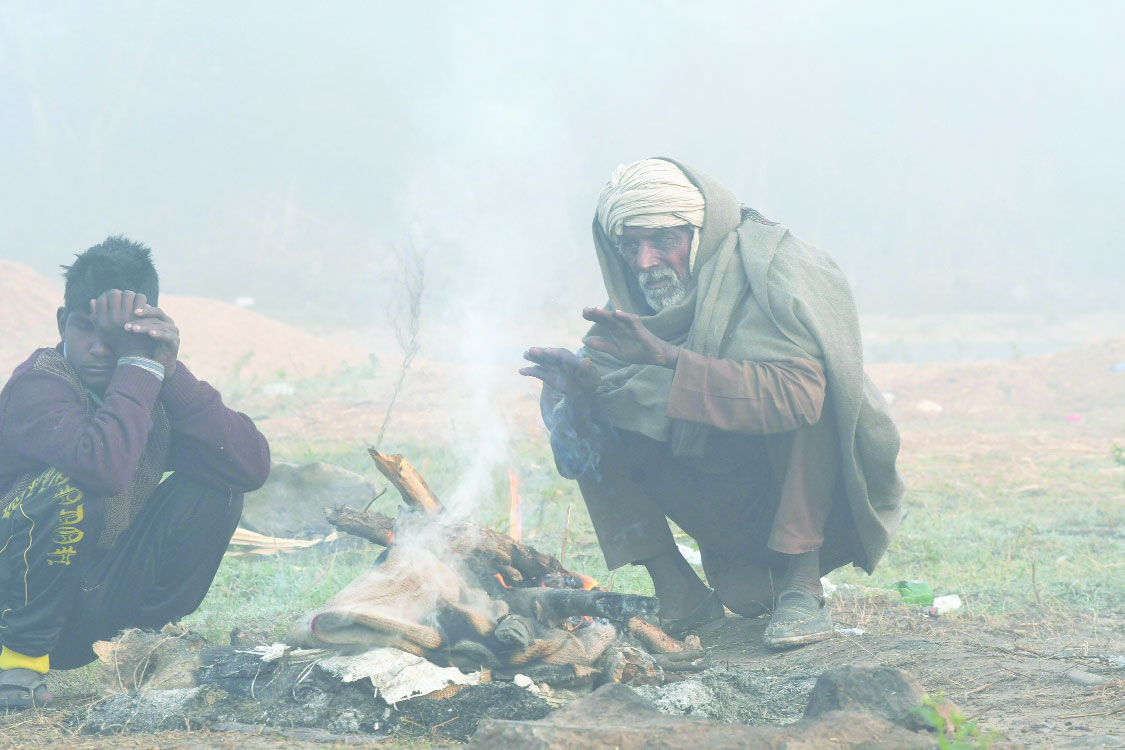North, central and some parts of east India may expect a harsher winter and can see a rise in the frequency of cold waves this season between December and February.
In its winter forecast for December 2020 and February 2021, the India Meteorological Department (IMD) on Sunday said north, northwest, central and a few subdivisions over east India to face below normal minimum temperatures between December and February due to La Nina conditions prevailing over the equatorial Pacific Ocean.
As per the forecast, night and early morning are likely to be chilly while day temperatures are likely to be above normal over the same regions.
According to the IMD, Srinagar recorded minus 1.4 as the minimum temperature on Sunday while Pahalgam and Gulmarg recorded minus 2.3 and minus 3.2 respectively as the lowest temperatures.
Leh town of Ladakh recorded minus 11.1 and Kargil minus 9.2 as the minimum temperatures.
Mount Abu was recorded as the coldest place with a minimum temperature of 1 degree Celsius. In the plains, Churu registered a minimum temperature of 4.1 degrees Celsius.
IMD’s forecast said the probability forecast for minimum temperature indicates that below normal minimum temperatures are likely over most subdivisions of north, northwest, central, and a few subdivisions of east India. Most of the subdivisions of North-East India, few subdivisions of west coast and south peninsular India are likely to experience above normal minimum temperatures.
“The probability forecast for maximum temperature indicates that above normal maximum temperatures are likely over most subdivisions of northwest, north, east and northeast India and a few subdivisions of central and peninsular India. Most of the subdivisions of south peninsular India are likely to experience below normal maximum temperatures,” IMD said.
This also indicates that these regions are likely to see more clear sky days, leading to radiational cooling at night during the coming winter months. The temperature variation (difference between day and night temperatures) is likely to be high in most subdivisions of north, northwest, central and a few subdivisions of east India.
Several years ago, an IMD study had analysed temperatures in north India and concluded that onset of winter was gradually shifting forward by around 15 days in recent decades.
La Nina is a climate pattern that describes the cooling of the Pacific waters. The impact of La Nina was visible as 2020 witnessed above normal monsoon with nine per cent excess rainfall this year. The winter season last year had long spells of cold waves. “Currently, Sea Surface Temperatures are below normal over central and eastern equatorial Pacific Ocean and moderate La Niña conditions are prevailing over the equatorial Pacific Ocean. The latest forecast indicates that the moderate La Niña conditions are likely to continue at least till the end of winter season”, the IMD said in its winter forecast.
The IMD releases a winter forecast every year in November which gives predictions on the severity of the winter season starting December to February.
The month of October was the coldest in 58 years in the national Capital. The mean minimum temperature in October this year was 17.2 degrees Celsius, the lowest since 1962, when it was 16.9 degrees Celsius.


























